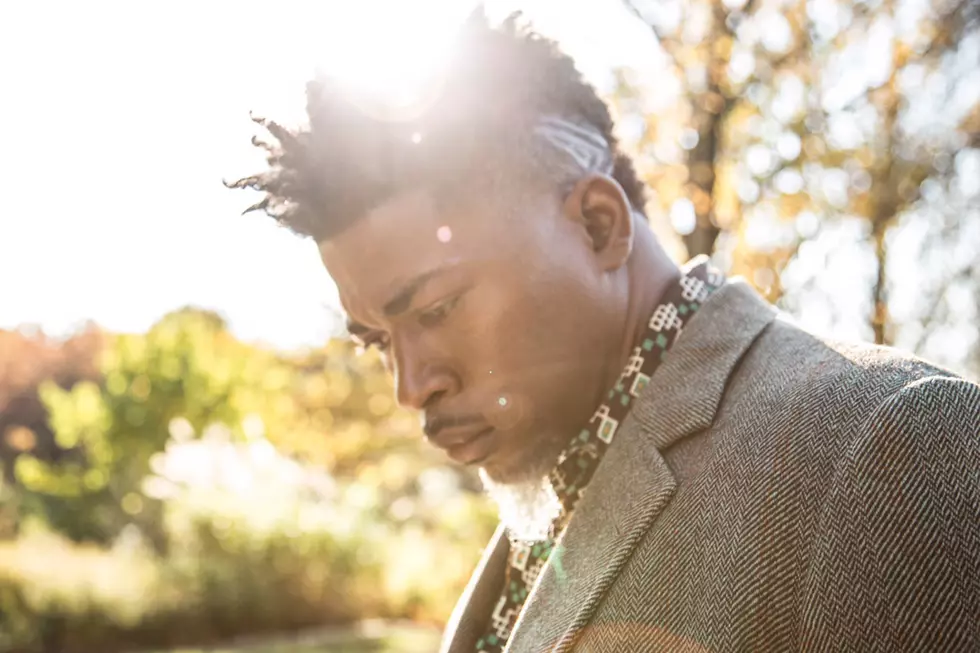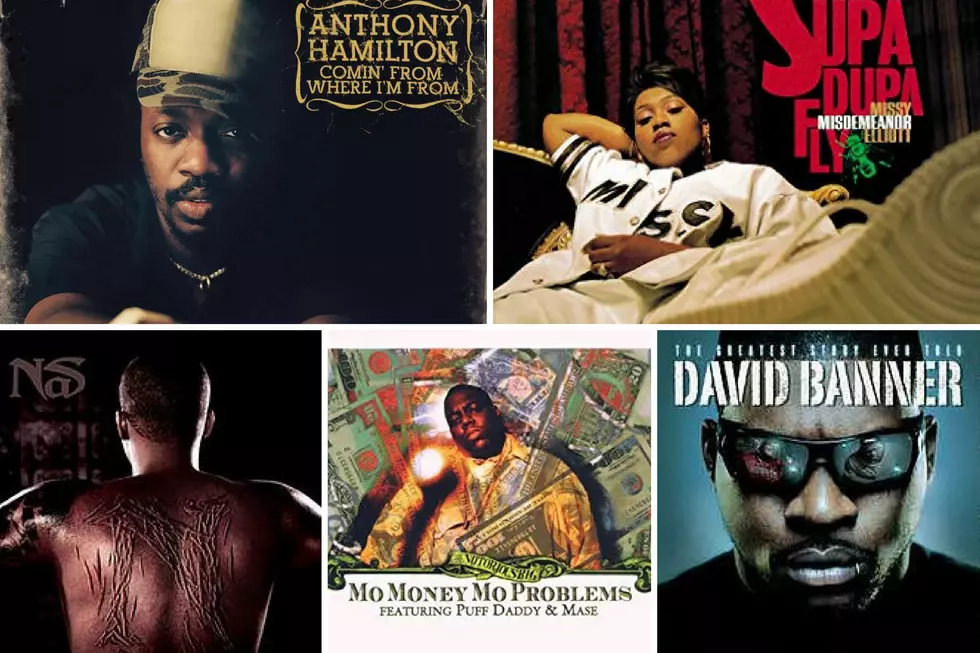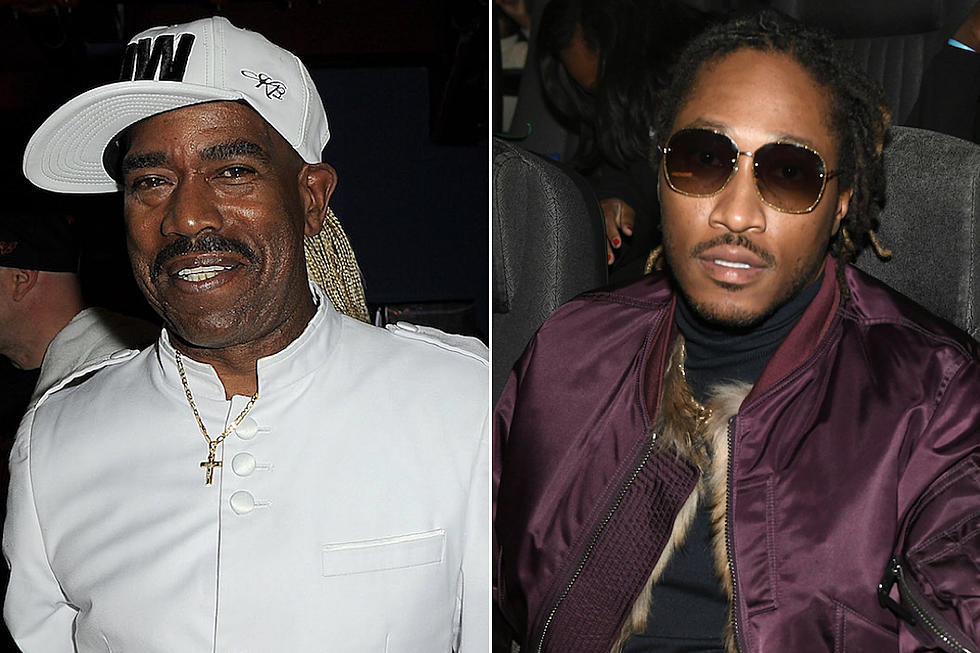
David Banner on ‘The God Box,’ Rapper Egos and Kids Popping Pills to ‘Run Away From Pain’
David Banner's reputation as a producer and emcee is well-established. The Mississippi rhymer who dropped "Cadillacs on 22s" and "Like A Pimp" and "Play" back in the early 2000s is also now an actor, TV host and keynote speaker. He's also one of the most interesting rappers you'll talk to.
Banner has a lot on his mind lately; including the current state of hip-hop, his new album The God Box, and the ongoing unrest in America. There's been an undeniable tension since the 2014 killing of Mike Brown in Ferguson, MO that has come to define the contemporary American experience.
"What popped off in Ferguson popped off, because wasn't nobody listening to black folks until s--- started burning." said Banner.
With a razor-sharp focus and his own unique perspective on both peers ("The only people that hip-hop really respects are ego maniacs") and outsiders, Banner has never been one to bite his tongue.
The Boombox: The God Box has been a long time coming.
DB: It's hard to describe, because the album almost didn't come out at all. There's some things that happened from a business perspective that almost thwarted the ability for this album to come out. This album meant so much to me, means so much to me. I put so much into it ... I purposely made this album the way that I did. I purposely pushed the line, both lyrically, sonically [and] from a concept perspective.
I want our culture to live, and I want this art form to be here for my children. Rock and roll was a black art form at one time, but the history books don't reflect that, and if we don't do something, culturally 30 years from now, rap won't reflect [it's true origins].
The God Box could definitely be considered a conscious rap album. Why do you believe some people are turned off by conscious hip-hop or being branded as such?
There's several reasons. One of the reasons is that our people and our culture have sold out to commercialism. Another reason is because smart, rich black folks have stepped off and left their community and never really came back as a whole. So our streets and our gutters had to create their own culture, and they don't respect uppity Negroes.
A lot of these dudes say that they're building, but they really not building, they just trying to show how smart they are," the rapper added. "I knew that some people wouldn't understand the concepts of this album, so I started lecturing, and if you noticed I didn't go to big cities, I went to Birmingham, Little Rock, I went to Jackson, Miss ... And that's one of the reasons why this album, I believe, is being accepted in places that most conscious albums probably wouldn't have feet to walk on.
You previously mentioned that the song "Magnolia" with Ceelo Green and Raheem DeVaughn is about the connection between Mississippi trees and Africans throughout history. How did you come up with that concept?
I had an idea about writing a book that was called If Trees Could Talk, and it was going to be about the relationship of Africans throughout history. The people who came though Mississippi and their relationship to trees there. And the taller the tree, the wider the perspective of the story but the less personal it's going to be. The smaller the tree, it would probably be about one person or one group of people or two friends or a household.
Ceelo's story was from a smaller tree's perspective and about one particular person. Where I was talking about the magnolia tree that was taller, and she talked about slavery ... so she was talking about how she was used in the lynching of blacks.
Why is it important to you to be embraced by younger fans? When they vibe with your stuff--do you consider that "mission accomplished?"
Well, it's not "mission accomplished." It just means that we're on people's minds. We're on their radar. "Mission accomplished" is when we start loosening ourselves from mental slavery. When these children start picking up books and wanting to pick up books and put these f----ing phones down. And we start treating our women better. When people decide they want to leave these big cities and go back and see their grandmother. That's "mission accomplished," when people actually do something.
Just listening? Listening is an honor. The fact that people would consider you, but when you call people to action, and they actually stand and do it, is when you have accomplished something.
In a recent interview you mentioned how sobriety and meditation helped to save you. What do you think about all of the drug talk in a lot of today's rap music?
I said something on the last full song on the album called "Burning Thumbs," and I said 'These kids popping drugs in the club, I can't blame them. They're trying to run away from pain. I don't judge these kids for what they do. That's the most phony thing to me. You have all these grownups acting like we wasn't doing the same thing. Every generation thinks that they're better than the generation after. When the truth is, our children are only a reflection of the times.
What's your writing process like? Do you write in the studio? At the house?
I don't really have a way ... I just let the spirit affect me. One thing that I don't do much anymore is write in the studio. I think that's a waste of time, [because] you don't go to a basketball game and practice. I practice, and I write, and when I go in the studio it's performing time ... with [The God Box], a lot of these lyrics are etched in my heart. I practiced all of them, I listened to them, I considered them before I just threw them up on the track. I ain't just pissin' and sh----n' on the track.
What do you hope people take away from The God Box?
Man, go purchase it. Also, that The God Box is an art exhibit. Every song, there's this young artist named Manzel Bowman. Illest cat from New York and he did the cover, and I was like "Bro, you are so talented, let's do a whole exhibit." So quietly, I'm trying to bring back the culture. Not just the music."
More From TheBoombox


![David Banner: ‘White Folks Got Black Folks So Petrified They Tell You How to Protest’ [VIDEO]](http://townsquare.media/site/625/files/2016/07/David-Banner-Bennett-Raglin.jpg?w=980&q=75)


![David Banner Finally Drops ‘The God Box’ [LISTEN]](http://townsquare.media/site/625/files/2017/05/david-banner-god-box.jpeg?w=980&q=75)
![David Banner Drops ‘Magnolia’ with CeeLo Green and Raheem DeVaughn Ahead of ‘The God Box’ LP [LISTEN]](http://townsquare.media/site/625/files/2017/05/David-Banner-Magnolia-The-God-Box.png?w=980&q=75)
![David Banner: ‘It’s Not White People’s Racism That’s the Problem, It’s Black People’s Lack of Racism’ [VIDEO]](http://townsquare.media/site/625/files/2017/04/David-Banner-on-The-Breakfast-Club.jpg?w=980&q=75)

